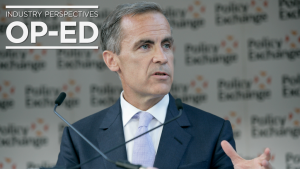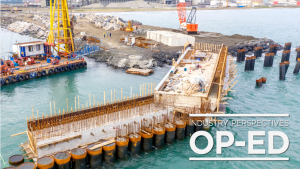The Government of AlbertaтАЩs provincial budget put forward by Premier Danielle Smith and Finance Minister Nate Horner represents a realistic, prudent path forward.
Budget 2024 recognizes two pressures: AlbertaтАЩs massive population growth, along with the need for fiscal discipline at a time of global economic turbulence and federal regulatory uncertainty towards major energy projects.
The budget earmarks $25 billion in capital spending over three years, $2 billion more than last yearтАЩs budget, to build critical infrastructure projects from new roads and hospitals to schools, as the provinceтАЩs population grows at its highest rate since the 1980s. These projects will support 24,000 direct and 13,000 indirect jobs annually.
For AlbertaтАЩs construction sector, labour continues to be an ongoing challenge. In addition to an ambitious capital plan, the provincial budget also makes investments in both attracting workers from elsewhere in ║┌┴╧│╘╣╧═Ї and training new apprentices.
The creation of 3,200 new spaces for apprentices is a welcome investment in the future of skilled trades across the province.
The provincial budget also delivers on the recent UCP campaign commitment to attract skilled workers through an тАЬAlberta is CallingтАЭ attraction bonus. This incentive will be helpful for employers who are in fierce competition with other provinces to attract skilled tradespeople.
With a program start date in April, itтАЩs clear that the UCP government is serious about its commitment to help employers retain skilled workers in demand today.
When Smith spoke to Albertans in her televised remarks a week before the budget, she acknowledged the challenges borne by reduced revenues, particularly from volatility in resource revenues.
This could easily could have turned into a case for deficit spending, side-stepping difficult decisions today by hoping that they could be resolved later.
Previous Alberta governments have taken this approach, and Albertans are still paying for it.
Budget 2024 includes $3.4 billion in debt servicing costs for yesterdayтАЩs decisions. ThatтАЩs just interest on debt, not a service, not a program, not a new building.
When Alberta was hit by a credit downgrade in 2017, one of several in that period, the NDP finance minister at the time downplayed concerns, at one point even telling reporters that higher costs from borrowing for Albertans will тАЬcome out in the wash.тАЭ
Thankfully, through careful spending decisions, the province is not adding further to this burden.
AlbertaтАЩs approach is in stark contrast to British Columbia, where that provinceтАЩs NDP government released its provincial budget the previous week. British ColumbiaтАЩs budget projects a record $7.9 billion deficit in the next fiscal year, up from $5.9 billion last year.
The BC NDP budget increases capital spending by $4 billion to a total of $14.1 billion for new infrastructure including schools, roads and health care facilities.
While these are welcome investments, their impact is diminished by B.C.тАЩs flawed labour policy that escalates the cost of large public projects by discouraging competition and preventing highly qualified companies and their workers and from bidding and building these projects.
British ColumbiaтАЩs return to further annual deficits is unsustainable and will only create further challenges for that province, as shown by B.C.тАЩs own experience from the 1990s.
Alberta is showing the rest of ║┌┴╧│╘╣╧═Ї how itтАЩs done; that a responsible approach to provincial finances and growth, is possible. By maintaining discipline while still making major investments in health care, education, new apprenticeship spaces and infrastructure, AlbertaтАЩs plan will keep the provinceтАЩs economy strong and growing.
Paul de Jong is president and CEO of the Progressive Contractors Association of ║┌┴╧│╘╣╧═Ї. Send Industry Perspectives Op-Ed comments and column ideas to editor@journalofcommerce.com.











Recent Comments
comments for this post are closed